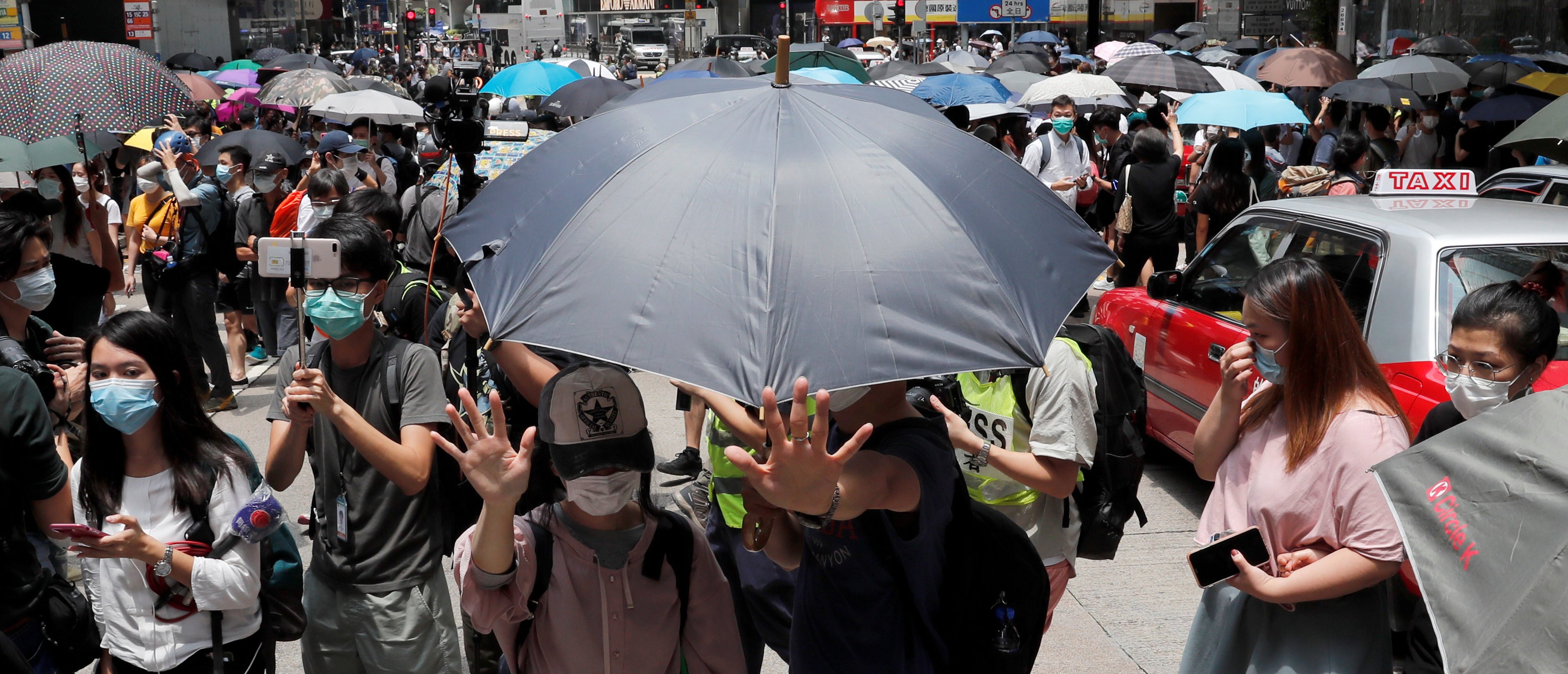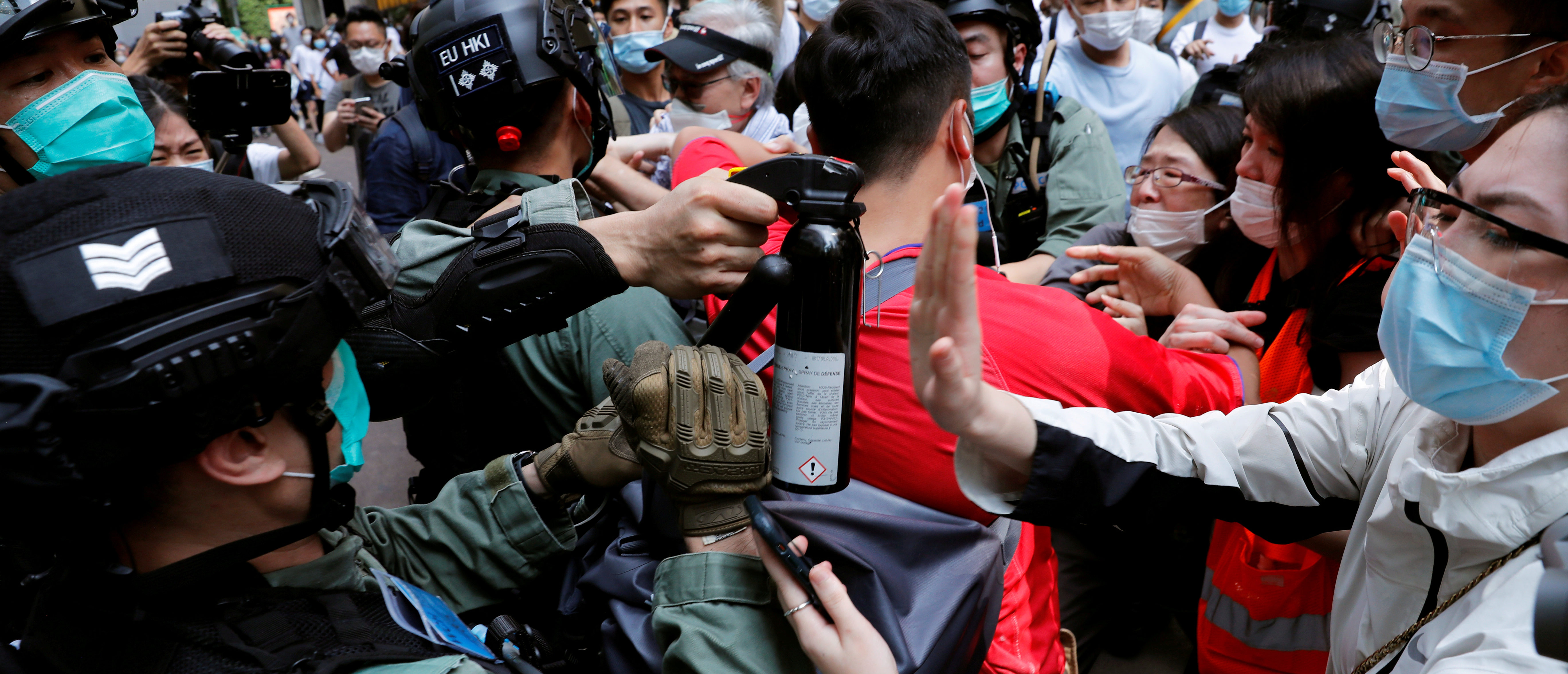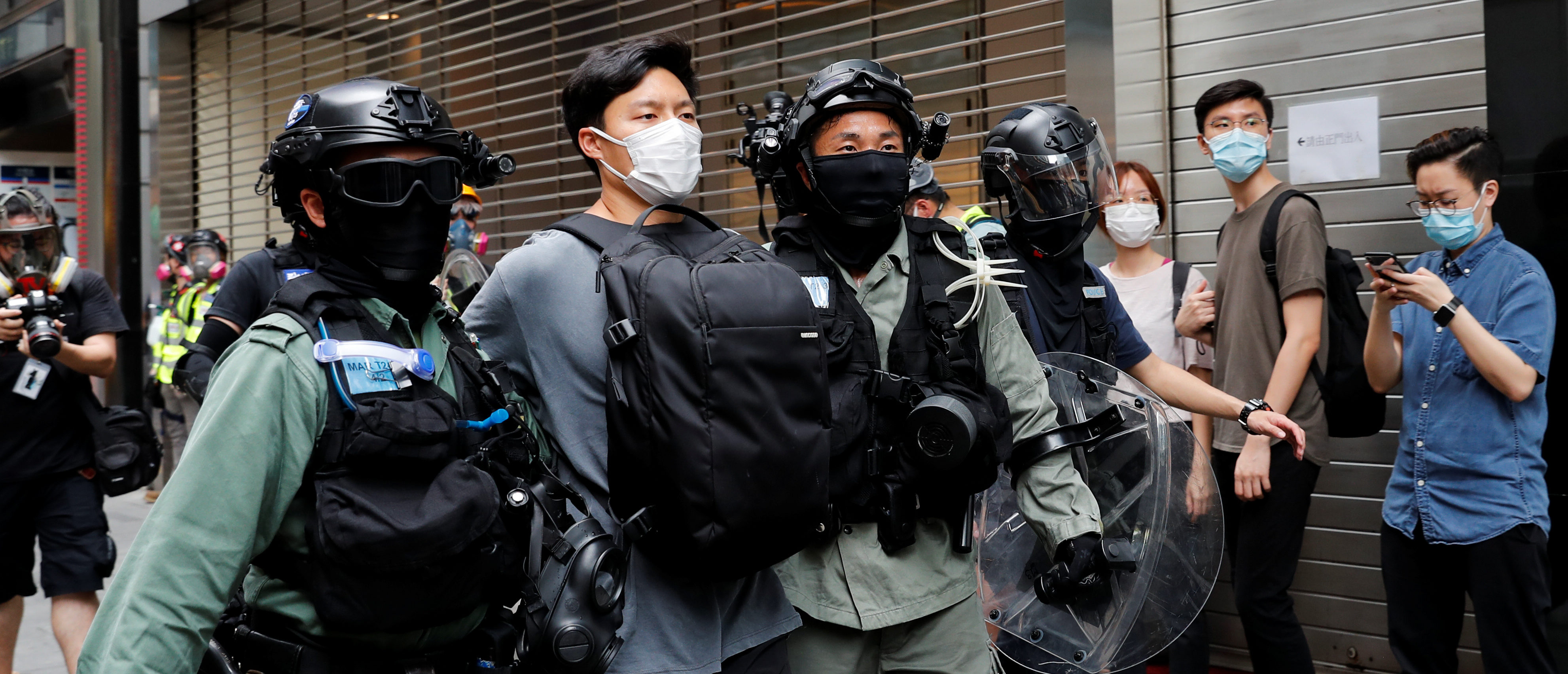Police in Hong Kong fired pepper pellets and made more than 300 arrests Wednesday as thousands of people marched in protest of a controversial national anthem bill.
Protests occurred in multiple areas of the city as people took to streets in order to block traffic and attempted to surround Hong Kong’s legislature, according to BBC News. The protests that took place Wednesday were largely directed toward a national anthem bill, currently being discussed in Hong Kong’s Legislative Council. If passed, anyone who misuses or insults China’s national anthem would face a fine of up to $6,000 and up to three years in prison.

Protestors take to the streets holding umbrellas, a symbol of the protests in Hong Kong (Tyrone Siu/Reuters)
Hong Kong, which is an autonomous territory of China, has experienced huge protests for more than a year over China’s growing influence in Hong Kong’s politics and society. The latest move by China includes the proposal of new national security laws that would provide the central government more authority on security and policing, essentially bypassing Hong Kong’s local government.
The new wave of protests began Sunday, with police firing tear gas and water cannons to disperse protesters, and have only intensified as the national anthem bill is set to clear the second round of debate in Hong Kong’s legislature.

Hong Kong riot police threaten protestor with tear gas (Tyrone Siu/Reuters)
The downtown area, which is the home to the city’s financial center, was essentially shut down as thousands marched in the street chanting “Liberate Hong Kong! Revolution of our times” and “Hong Kong independence, the only way out.”

Riot police officers detain a protestor (Tyrone Siu/Reuters)
In response, the Beijing-backed Hong Kong government stationed riot police around the city, who fired pepper pellets and wrestled protesters to the ground. A large group of students were also detained by police in Causeway Bay district. (RELATED: Hong Kong Ice Cream Shop Offers New ‘Tear Gas’ Flavor)
Causeway Bay. The punishment for being young in Hong Kong. #NationalSecurityLaw #StandWithHongKong #HongKongProtests@StandNewsHK pic.twitter.com/dJF3semh9B
— woppa ???????? (@Woppa1Woppa) May 27, 2020
The city’s Chief Executive Carrie Lam told CCTV that the new changes to Hong Kong would not affect its autonomy, although the waves of protests and China’s response have seemed to suggest otherwise.


